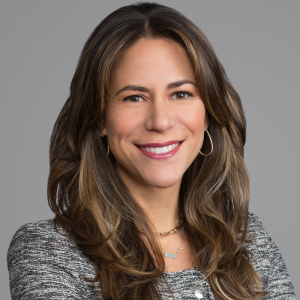Women Leaders as Agenda Movers: Leveling the Playing Field
 Guest Contributed By Samuel B. Bacharach
Guest Contributed By Samuel B. Bacharach
Recently I was asked to give a talk to a forum attended by fifty women executives. The topic was based on my new book and was titled, “The Agenda Mover: When Your Good Idea Is Not Enough.” Two days before the talk, two invitees objected, or at least questioned, my legitimacy, and pointedly asked the organizers “What does a man know about women and leadership?”
My response was that, indeed, I had no expertise that was unique to the challenges of being or aspiring to be a woman leader. My expertise is in the micro-political skills that any leader—no matter what their personality, background, age, gender—needs in order to move their ideas, their agendas, and their change efforts forward.
I am the first to admit that every leader brings to their agenda mover challenges their unique voice, their unique skills, and their unique narrative. Leaders face different burdens. While, for some, due to societal expectations and pressures, the burdens are greater, the core skills of leadership are ubiquitous.
If you want to succeed in an organization, if you want to move your idea forward, if you want to drive your career—to lead any effort, you need to have mastered political competence. That is, you must acquire and develop the micro-skills overcome resistance, mobilize support, and go the distance. Leaders of all stripes need to understand that a good idea is simply not enough. As a leader, you need the skills of political competence.
Having trained leaders at all levels of numerous organizations, I have determined that there are four fundamental agenda-moving skills:
1. Anticipate. When innovating and creating change, your idea is inevitably going to impact others. You have to anticipate how others will react to your idea. You need to know whom you’re dealing with, interpret their intentions, gauge their resistance, and expect the arguments that they will make against your idea.
Successful leaders spend as much time formulating their plan as they do mapping the political terrain and working out how they will present and justify their ideas to others. They expect resistance, and have made plans to overcome the naysayers.
2. Mobilize. You can’t do it alone. To achieve results, you have to work with a coalition of supporters who share your goals. Coalitions not only lighten the workload, but they reinforce your credibility and protect you—and your team—against unexpected setbacks.
To mobilize others, you must be careful to focus your message, be smart about timing the release of your messaging, astute about language, and perceptive about your audience. Support can be weak or strong, or middling, and politically competent leaders know when lukewarm support is enough to get their agenda accomplished, and when they have to press harder for a greater degree backing.
3. Negotiate. You have to negotiate support. You have to show others that there is little risk in joining you in your effort. Give a sense that you are fine without them, but it would be nice to have them along on the effort. Show prospective coalition members what they can gain from aligning their interests with yours. Getting the buy-in is about shifting your focus from your passion to really seriously thinking about where others are coming from, and what would motivate them to join your effort.
4. Sustain. You have to keep working after your coalition is in place. It falls on your shoulders as the leader to maintain traction, create short-term wins, create short-term victories, supply resources, and reinforce an optimistic outlook.
Sometimes agenda movers make the mistake of front-loading their effort on the coalition creation stage, and slack off once the coalition is formed. You can’t let your enthusiasm flag as you head toward the finish line. Make sure your coalition becomes a focused, agile, coordinated, forward-moving team.
After my talk, one attendee came up to me and said that the agenda moving skills were something that she learned late in life. She also mentioned that young men are taught the ropes of the political games well before young women. Isn’t that the sad truth?
Considering the challenges that women face, mastering the skills of an agenda mover is just but one more step to leveling the playing field.
About the author
Samuel B. Bacharach is the author of THE AGENDA MOVER: When Your Good Idea Is Not Enough (Cornell University Press, 2016). He is also co-founder of the Bacharach Leadership Group, which focuses on training leaders in the skills of the Agenda Mover, and is the McKelvey-Grant Professor at Cornell University.
Disclaimer: Views and opinions of Guest contributors are not necessarily those of theglasshammer.com










